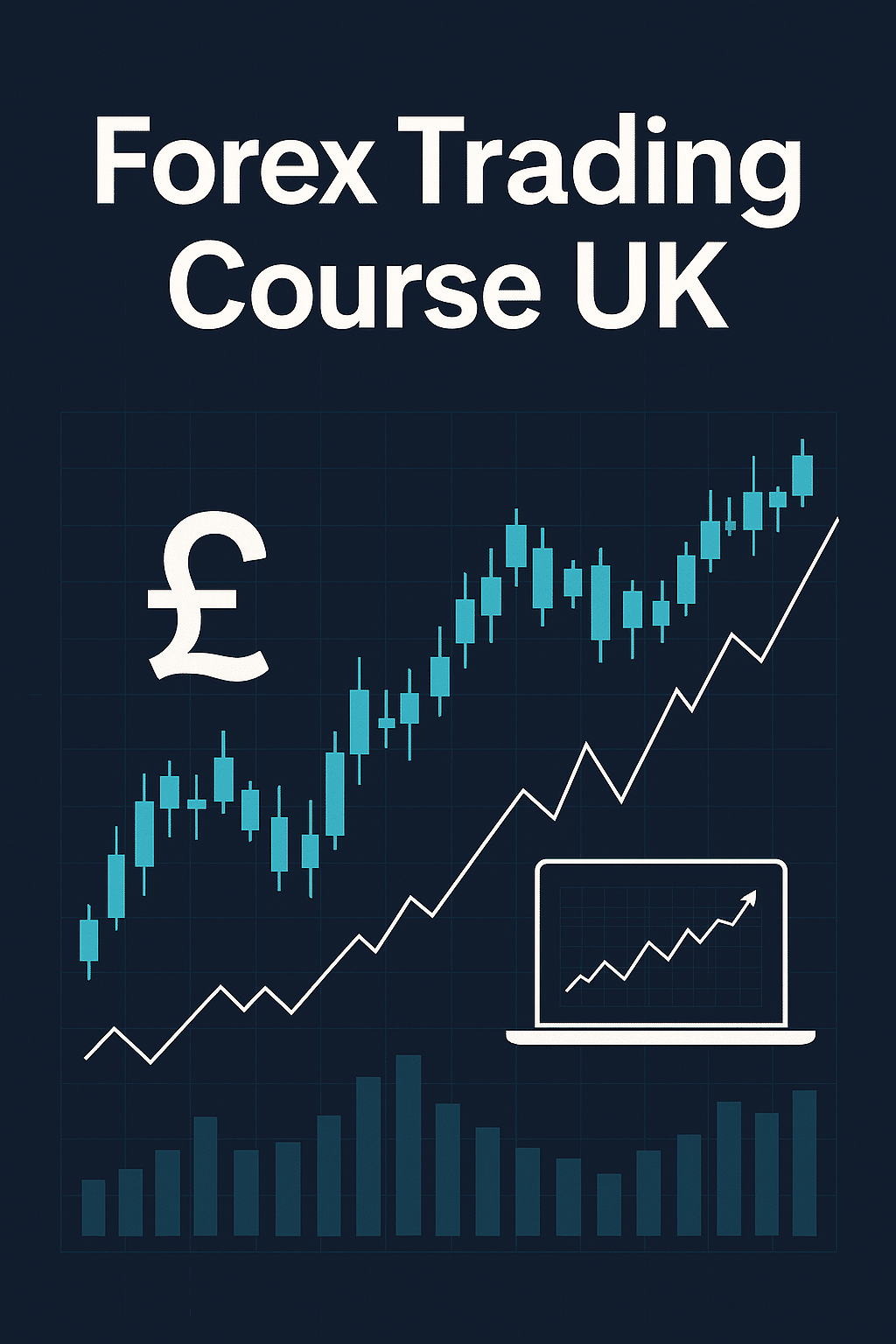Forex Trading Course UK

Learning to trade forex effectively requires structured education, practical experience, and access to proven strategies. A forex trading course UK equips traders with the knowledge to navigate the £7.5 trillion daily FX market, understand key market drivers, and implement risk-managed strategies. This article covers the benefits of taking a forex trading course, essential topics you should learn, and how UK-based courses ensure compliance with the Financial Conduct Authority (FCA).
Why Take a Forex Trading Course in the UK?
A professional trading course provides a clear learning path from beginner to advanced levels. In the UK, courses often integrate practical trading sessions and regulatory awareness, helping traders avoid costly mistakes.
Key benefits include:
- Structured learning: Step-by-step modules cover market fundamentals, technical analysis, and risk management.
- Regulatory guidance: Courses highlight FCA rules, protecting traders from unregulated brokers.
- Real-world practice: Access to demo and live trading accounts to apply strategies safely.
- Professional strategies: Learn tested approaches for day trading, swing trading, and position trading.
Core Topics Covered in UK Forex Courses
Market Fundamentals and Currency Pairs
A top UK forex course begins with currency market basics, including:
- Major, minor, and exotic currency pairs
- How the Bank of England, inflation, and GDP affect GBP movements
- Understanding bid/ask spreads and liquidity in the London session
Technical and Price Action Analysis
Practical trading requires chart reading skills. A strong course teaches:
- Support and resistance levels
- Trendlines, candlestick patterns, and moving averages
- Indicators like RSI, MACD, and Bollinger Bands for timing trades
Risk and Money Management
One of the most critical topics is controlling losses. Courses teach:
- Proper position sizing and leverage usage
- Setting stop-loss and take-profit levels
- Calculating risk-to-reward ratios to protect capital
Trading Psychology and Discipline
Emotional control often separates profitable traders from unsuccessful ones. A UK forex trading course typically covers:
- Avoiding revenge trading and over-leveraging
- Developing a trading plan and sticking to it
- Building the patience required for consistent growth
Key Takeaways
- UK forex trading courses combine theory, regulation, and practical trading.
- Learning price action, technical indicators, and money management is vital.
- FCA-compliant education helps new traders avoid scams and risky brokers.
- Mastering psychology and disciplined risk management increases long-term profitability.
Real-World Case Study
James, a London-based engineer, enrolled in a 12-week UK forex trading course. He began by learning GBP/USD fundamentals and practiced on a demo account using a 1% risk-per-trade rule. Within six months of structured learning and disciplined execution, he achieved a 7% monthly return with minimal drawdown. His success came from combining technical analysis with risk control, proving the course’s practical value.
Frequently Asked Questions
What is the best forex trading course in the UK?
The best course offers FCA-compliant training, real trading practice, and covers both technical and fundamental strategies.
Do I need prior experience to start a forex trading course?
No, most UK courses are designed for beginners and progress to advanced strategies.
How long does it take to complete a forex trading course in the UK?
Courses vary from weekend workshops to 12-week programs, with self-paced online options also available.
Are UK forex trading courses regulated?
While the courses themselves are not regulated, they often teach compliance with FCA rules and safe broker selection.
Can I trade live after completing a UK forex trading course?
Yes, but most traders start with demo accounts to build confidence before committing real capital.

